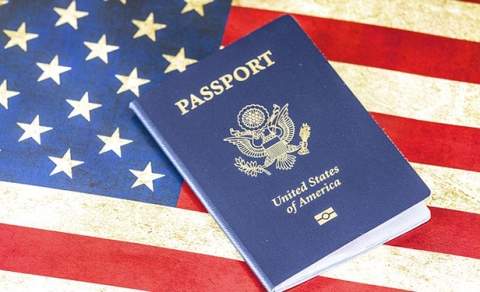Visit U.S. Coalition Launched to Increase Global Travel to the United States

On Jan. 16, the launch of the Visit U.S. Coalition was announced. Representing a broad cross-section of industries that have come together to address the decrease in international travelers to the U.S. and resulting opportunity cost to the U.S. economy and jobs, the coalition will partner with the Trump administration to reverse the decline in U.S. competitiveness for international travel dollars.
“America is the best country in the world to visit, but we’re losing the competition for international travelers and the dollars they spend when they come here,” said Roger Dow, president and CEO of the U.S. Travel Association.
He continued, “The Visit U.S. Coalition is founded on the principle that we can have strong security but at the same time welcome robust numbers of international business and leisure travelers.”
Founding members of the Visit U.S. Coalition include:
- American Gaming Association
- American Hotel & Lodging Association
- American Society of Association Executives
- Asian American Hotel Owners Association
- International Association of Exhibitions and Events
- National Restaurant Association
- National Retail Federation
- Society of Independent Show Organizers
- U.S. Chamber of Commerce
- U.S. Travel Association
The travel industry is a Top 10 employer in 49 states and the District of Columbia, and international travel is the country’s highest service export and second export overall.
Research prepared for Visit U.S. by the USTA shows that while global travel volume increased 7.9 percent from 2015 to 2017, the U.S. segment fell from 13.6 percent to 11.9 percent in the same period – the first drop after more than a decade of consistent growth.
If the U.S. had maintained its 2015 market share, its economy would have gained:
- 7.4 million additional international visitors
- $32.2 billion in additional spending
- 100,000 additional jobs
The U.S. was one of only two destinations in the top dozen global markets to see a decline in long-haul inbound travel since 2015. The drop stands in stark contrast to other large economies around the world. Notable among the countries whose tourism shares have recently grown: France, Germany, Spain and China.
“The U.S. economy is on the upswing but we can grow even more by encouraging more travel to America,” said U.S. Chamber of Commerce president and CEO Thomas J. Donohue.
He added, “Travel creates jobs and economic activity across a swath of industries and sectors as people visit the U.S. and spend their time and money with American businesses. The Chamber is proud to join with our partners in the business community to make the case for a renewed focus on travel as a driver of economic growth and American prosperity.”
Katherine Lugar, president and CEO of the American Hotel & Lodging Association (AHLA) expressed concern about losing ground to other countries in travel and tourism.
“Fewer visitors means fewer hotel stays, fewer meals eaten in our restaurants, fewer goods purchased in our retail stores and fewer visits to our national attractions,” Lugar said.
She continued, “It also means fewer American jobs and a loss to our economy. We are committed to working together with the Administration to balance a welcome message with strong security to ensure we don’t fall behind to other countries.”
In the coming weeks, Visit U.S. will advance policy recommendations that support its shared objectives with the Trump administration.
“Visit U.S. is committed to helping make the U.S. both the most secure and most-visited country in the world,” Dow added.
For more information on the Visit U.S. Coalition, go HERE


Add new comment